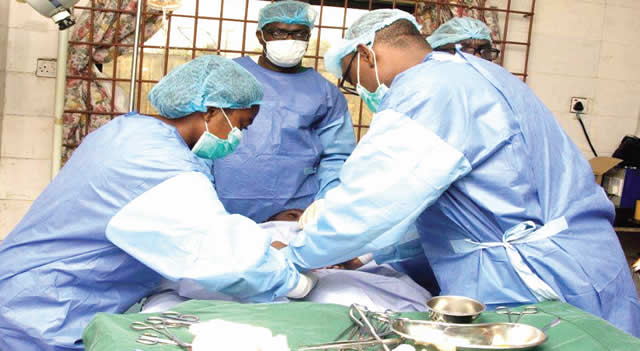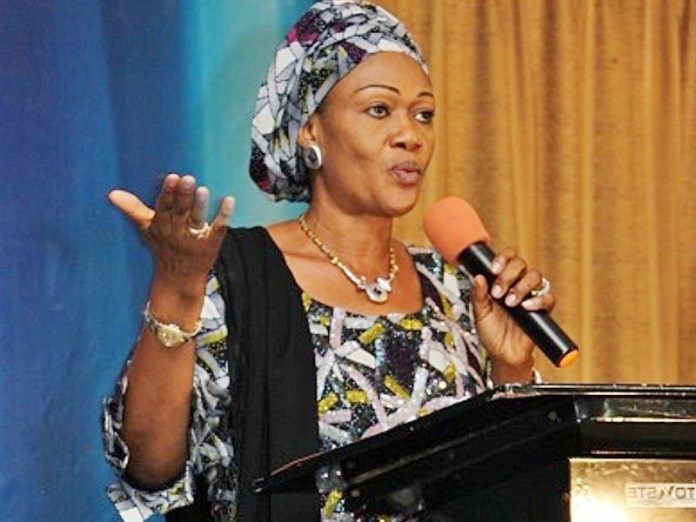Several young women of active reproductive age donates their eggs for monetary benefits, an action as a result of the hardship in the country, Nigeria.
Like every other organ in the body, eggs donation is a practice approved all over the world. Women between the ages of 18 and 30 years can voluntarily donate their eggs as humanitarian solution to infertility in the society.
Fertility experts disclosed that a woman of reproductive age has thousands of eggs, and that a woman can only use few of the eggs for child birth, while the remaining eggs will be useless.
In the society today, several women are having fertility challenges.
So, to solve the fertility challenges being encountered by some women, if those who have the eggs in abundance can donate, the society with the better for it.
However, the eggs donation is taking another dimension in the society today as several young ladies of reproductive age are now making monetary gains from the mystery of some.
It was gathered that many young ladies are choosing eggs donation as a viable alternative to prostitution in their efforts to make ends meet.
Investigations revealed that a donor can get between N100,000 to N120,000, depending on the location.
It was further gathered that the practice of eggs donation among young women has been on for a long time, it is more rampant now because of biting poverty in the country.
A medical practitioner, Dr. Fauzat Aragbaye, attributed the prevalence of eggs donation among young women largely to the rising poverty rate.
“We have ladies who don’t want to go into prostitution or armed robbery, and because of that, they prefer to do whatever they can to feed themselves. Since we know that unemployment is very high in Nigeria, it is actually pushing people to do what they ordinarily would not want to do.
“It has to do with reproductive health, and we know that some women have problems with their eggs and they want to have children. Even in advanced countries, they have issues. It is only that it is regulated in the sense that you may not need to be paid for donating eggs.
“But the fact is that some ladies actually want to help people, not because of the incentive. Some may really want to help people who are looking for children because they know that in most marriages where there are no children, the marriage may not stand.
” From what I read, in Britain, it was not too long ago that they regulated it, but in Nigeria, in 2012, there was a bill that was sent to the National Assembly. It passed through the second reading, but that was where it ended.
“If there is regulation, at least there will be stipulated guidelines, and they will have recognized hospitals where these donations can be taken. We know that where there is no regulation, there is likely to be lawlessness, and that is what is happening in Nigeria now. The donors are even being cheated, they are promised a certain amount, but they are eventually given less.
“Apart from that, we have intermediaries who will get donors, arrange where they are going to donate, and take their own share out of it. In most cases, these intermediaries are people who have donated before. There was one instance of a lady who actually donated about six times, and she said she is no longer doing it. We know that women have a lot of eggs, but as a woman gets older, the eggs diminish in number.
“But before they actually donate eggs, they have to be given some hormonal injections. Some of them will react to the injections, and some will not. All the same, eggs harvesting is not a very good thing, but a woman who couldn’t have a child could get a donor to help. What we want is regulation.
“What happens is that the egg will be fertilized by sperm and that’s one of the reasons they don’t allow the donors to know who they are donating to. It is 50-50. When the sperm meets the egg, the child may resemble the father or both the father and mother, and there is nothing you can do about it, ” Aragbaye explained.
A 26-year old donor (name withheld), a native of Kwara State, said””I live here in Akure with my parent.
“I am an undergraduate at Lagos State University (LASU). I come home once in a blue moon. I lost my father at the age of 10. Ever since, my mother and I have been trying to make ends meet.
“Some of my friends introduced me to a new hustle: donating our ovary eggs to help the world. My friends and I found a quick and easy way to make money without any molestation.
“We only give to the less privileged what we have in abundance, with some cash in return. We see it as a donation of eggs for public fertility care. I do this when I want to return to school. Instead of going to the street, I just walk to a hospital, make my donations, and leave.
“We make more money from it in Lagos than when I’m back home in Akure. The only difference is that the prices vary.
“I don’t really feel anything during the process. It’s just like menstrual cramps. After six hours, and a whole day of rest with some medication, I am okay. I always feel proud of myself and thank God that I can give to others, even though money is involved.
“Many of my friends are always turned down whenever they go for it, both in Lagos and here in Akure. I count myself lucky that I have good ovaries and can even make some cash from it. By the grace of God, I will soon stop,” she stated.
A fertility expert, Dr. Akinbowale Romans Eniowo, described egg donation as a practice approved all over the world, saying. “It is like blood donation where people need blood, and we have people who come to the hospital or laboratory to help donate blood. Some people are having fertility problems and need egg donors. It is approved all over the world, and the egg donors donate their eggs. Some collect money, and some do not.
“Some of these ladies do not want to marry. They come to the hospital for ultrasound scanning and find they have polycystic ovaries or other reproductive issues. When they are contacted for IVF and assisted reproductive techniques, they are willing to donate.
“The term ‘selling’ does not apply; I have not seen any of them selling eggs. It is just like the way some people donate their kidneys. Do you say they are selling their kidneys? It is a medical condition that requires attention, and the Bible also says we should help others in the way we can.
“Some people go through a lot because they cannot have a child of their own, and don’t forget some people have good quality eggs and are not married, so they can donate their eggs.
“If they donate their eggs and receive a token for it, there is no amount of money that can fully compensate them. If they use it to solve their problems or pay their school fees, is there any crime in that,” Eniowo asked.
NOTE: YOU can join our WhatsApp, Telegram for the news updates you need by sending your name & location to WhatsApp No. @ Wa.me/+2348111142174
While stating that a female adult has about 5000 eggs, the fertility expert noted that donors do not know the recipients of their eggs, and advised young ladies not to go through the process more than two times in their lifetime in order to avoid health crisis in future.
“When we are in need and we advertise or they know your centre for it, mostly those in the laboratory get them for us. At times, some come for the process but are above the age range. When this occurs, we investigate. Some within the target age group are not just suitable for donation and this we discover after we take their blood sample,” he stressed.
A health educator, Famolu Oluwafunmito, explained that there are procedures involved for both the donor and recipient, such as screening and selection of the donor, medical and psychological evaluations, legal and ethical considerations, ovarian stimulation with hormonal medications to monitor the donor’s cycle for egg production, egg retrieval from the donor, fertilization, and transfer to the recipient.
Mrs. Kate Idima, a businesswoman, however, described the development as strange and dangerous, adding that morals have decayed in our society, and evil tends to thrive more.
A Nurse at a fertility clinic in Akure, Oyinkansola Oluseye, explained that she has attended to not less than 20 patients which have been successful, just as she cautioned ladies above the age of 26 years old against undergoing the process more than three times.
She equally advised donors to get marry on time so as to be fertile at the appropriate time.
By Tola Gbadamosi & Kemi Olatunde.
YOU CAN READ MORE NEWS UPDATES AND INFO @ https://www.voiceairmedia.com




